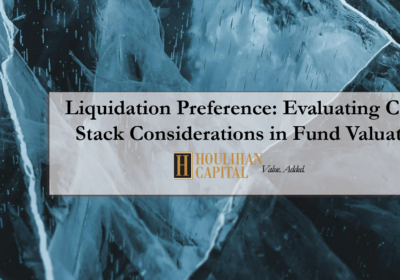Valuation Rules Have Changed.
This past April, the SEC’s rule changes in connection with unlisted Real Estate Investment Trusts (REITS) and Direct Participation Programs (DPPs) became effective. FINRA RN 15-02, which amends National Association of Securities Dealer Rule 2340 (Customer Account Statements) and FINRA Rule 2310 (Direct Participation Programs), promotes greater transparency for shareholders and investors regarding valuations and customer statements.
These amendments modify the requirements for inclusion of per share estimated values of DPPs and non-traded REITs. The motive behind such amendments is to increase transparency pertaining to the costs associated with these types of investments and to prevent overstatement of the valuations shown on customer account statements. This will lead to a more fully disclosed and unbiased reflection of the investment’s estimated value. In addition, the amendments make changes to the eligibility requirements of members’ participation in public offerings of DPPs or REIT securities.
The SEC’s amendments to Rule 2340 requires securities members to include in customer statements a per share estimated value for a DPP or REIT security. Two methodologies have been deemed reliable, but only one can be used, and must be used, in accordance to the investment’s timeframe since breaking escrow.
1. Net Investment Method: Must be used until two years and 150 days after breaking escrow. It establishes the net value of an investment by deducting sales commissions and related charges, such as organizational and offering expenses, from the initial investment cost.
Customer statements are required to include disclosure, if applicable, relating to overdistribution to address potential misunderstandings by customers when their capital is returned to them through a distribution that otherwise could appear to represent earnings on their investment.
2. Appraised Value Method: Must be used no earlier than two years and 150 days after breaking escrow. This method requires (i) a third-party, independent valuation expert or service perform or provide material assistance in the valuation, (ii) that it must be performed at least annually, and (iii) the valuation must be derived from a methodology that conforms to standard industry practice.
According to 15-02, non-traded REITs can utilize either of the two methodologies deemed reliable, while non-traded Business Development Corporations, which are subject to the Investment Company Act of 1940, may use a per-share estimate that has been developed consistent with the valuation requirements of the Investment Company Act.
In addition, a member must disclose that the DPP or REIT securities are not listed on a securities exchange, are generally illiquid, and that the price received for selling such a security may be less than the estimated per share value provided on the account statement.
The SEC’s amendments to Rule 2310 now prohibits members from participating in a public offering of the securities of a DPP or REIT unless the issuer has agreed to disclose:
- a per share estimated value of the DPP or REIT security (Pursuant to Section 13(a) or 15(d) of the Exchange Act),
- an explanation of the method by which the value was derived, and
- the date of the valuation.
Or, if the issuer agrees to disclose, in a periodic or current report filed pursuant to Section 13(a) or 15(d) of the Exchange Act within 150 days following the second anniversary of breaking escrow and in each annual report thereafter, a per share estimated value:
- Based on the valuations of the assets performed at least annually by or with a third-party valuation expert or service that performs or provides material assistance or confirmation
- Developed from a method that conforms to standard industry practice
- Accompanied by a written opinion or report by the issuer, delivered at least annually, that explains the scope of the review, the valuation method used, and the basis for the reported value.[1]
Alternative fund managers acting in good faith can differentiate themselves by adopting internal controls that effectively preclude misleading investors about the value of a portfolio’s assets. Paradoxically, the most important internal control may be the liberal use of an external valuation service provider. An independent third-party valuation firm can review a fund’s policies for compliance issues, provide a validation of valuation methodologies, and/or provide clients with independent valuations of assets that minimize regulatory risk. Further, institutional and accredited investors increasingly consider verifying and investigating use of independent third-party valuation experts a necessary part of due diligence.
Houlihan Capital can help. We are a leading independent valuation advisory firm whose clients include some of the largest active asset managers in the world. We are SOC-compliant and committed to the highest levels of professional ethics and standards. For more information on independent third party valuation services, please visit www.houlihancapital.com or contact Paul Clark at 312‐450‐8656.
[1] FINRA, Regulatory Notice 15-02 (2016)


